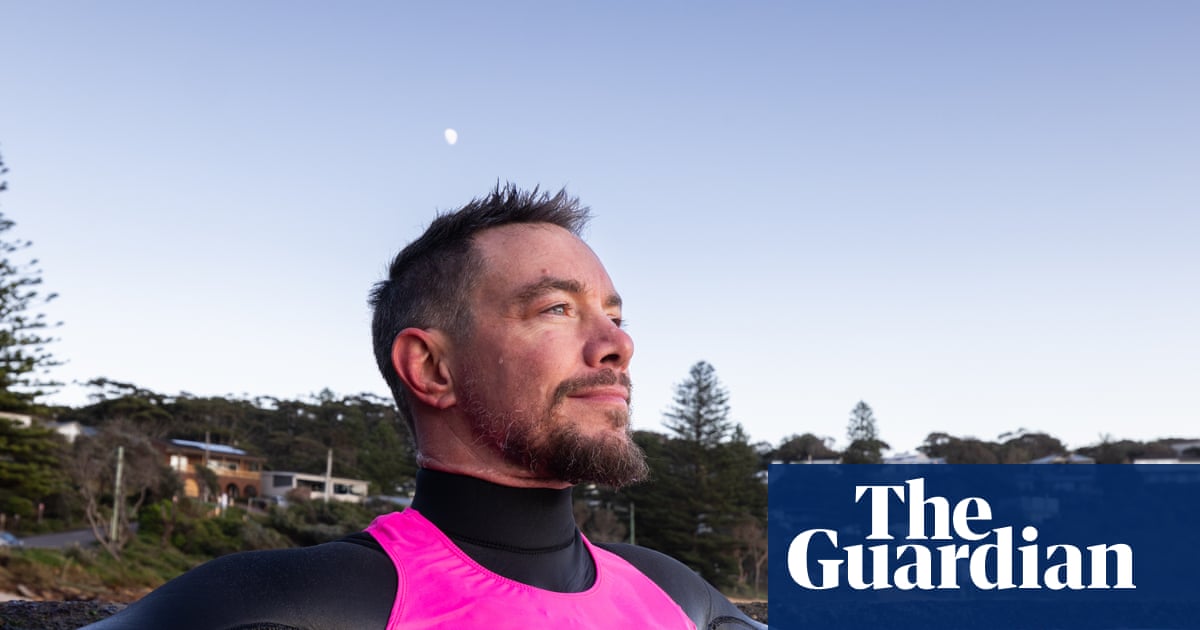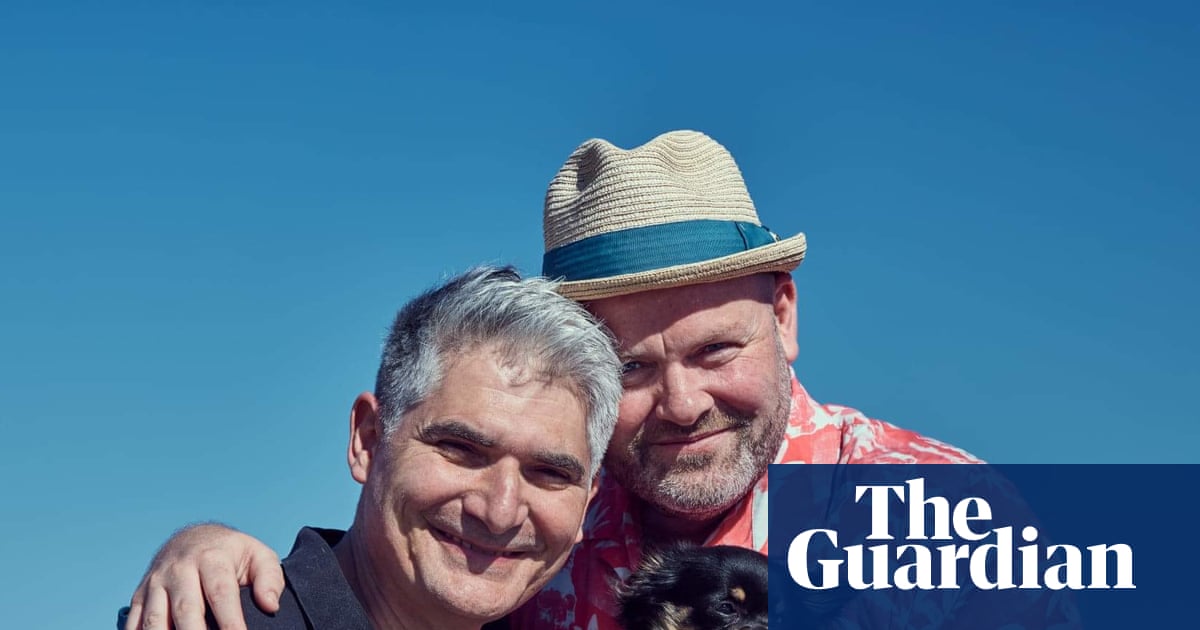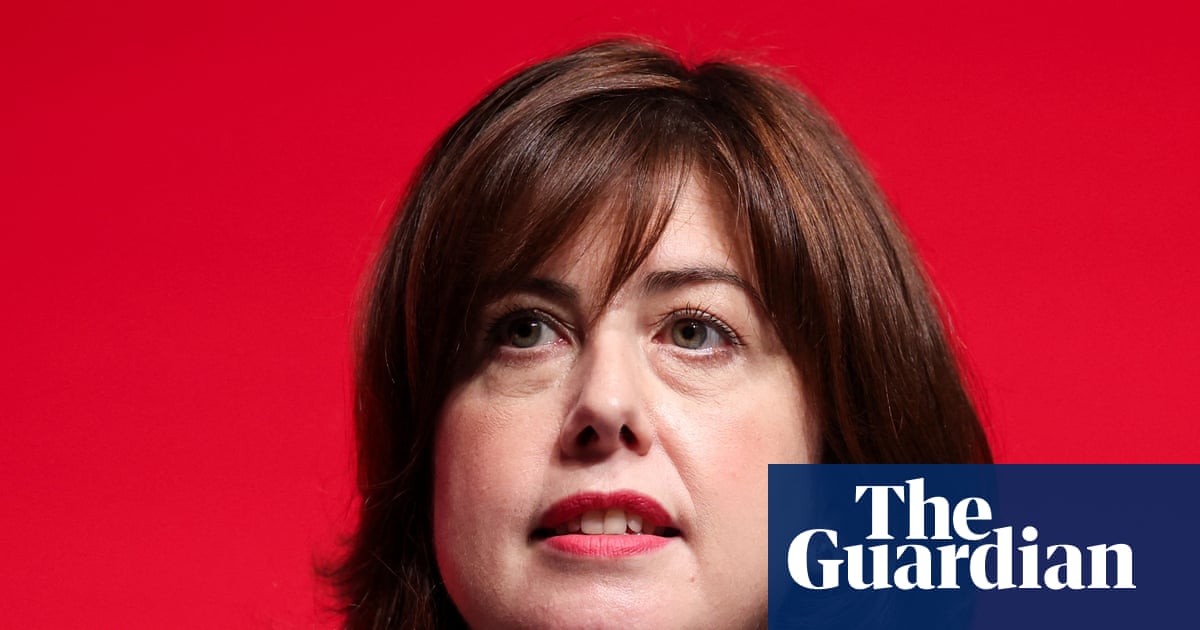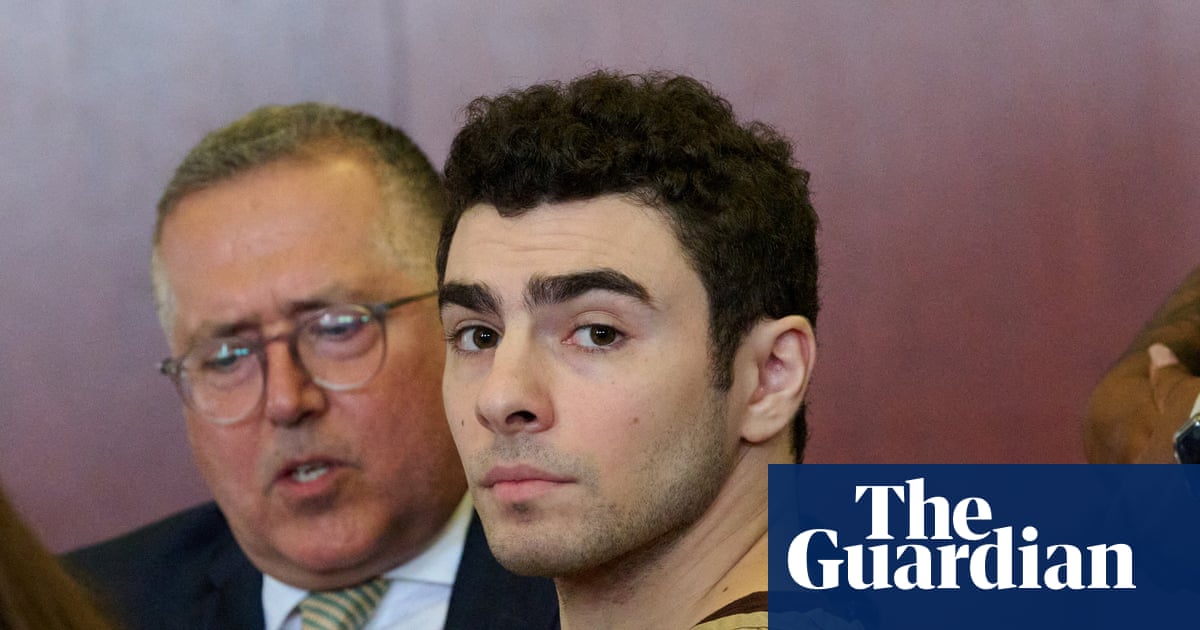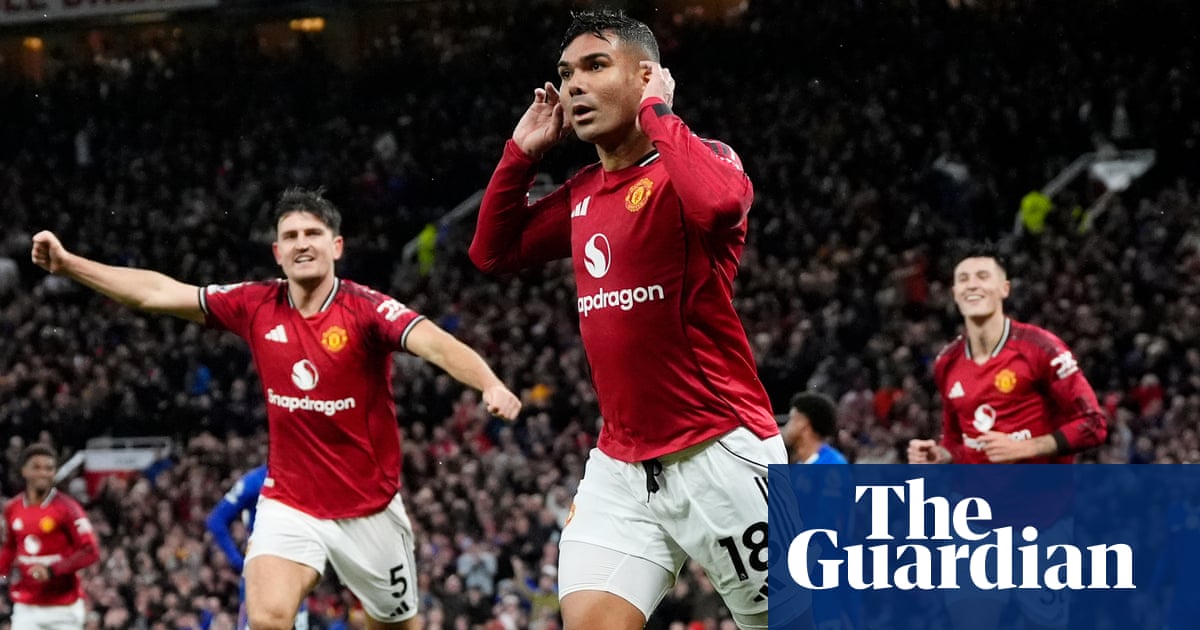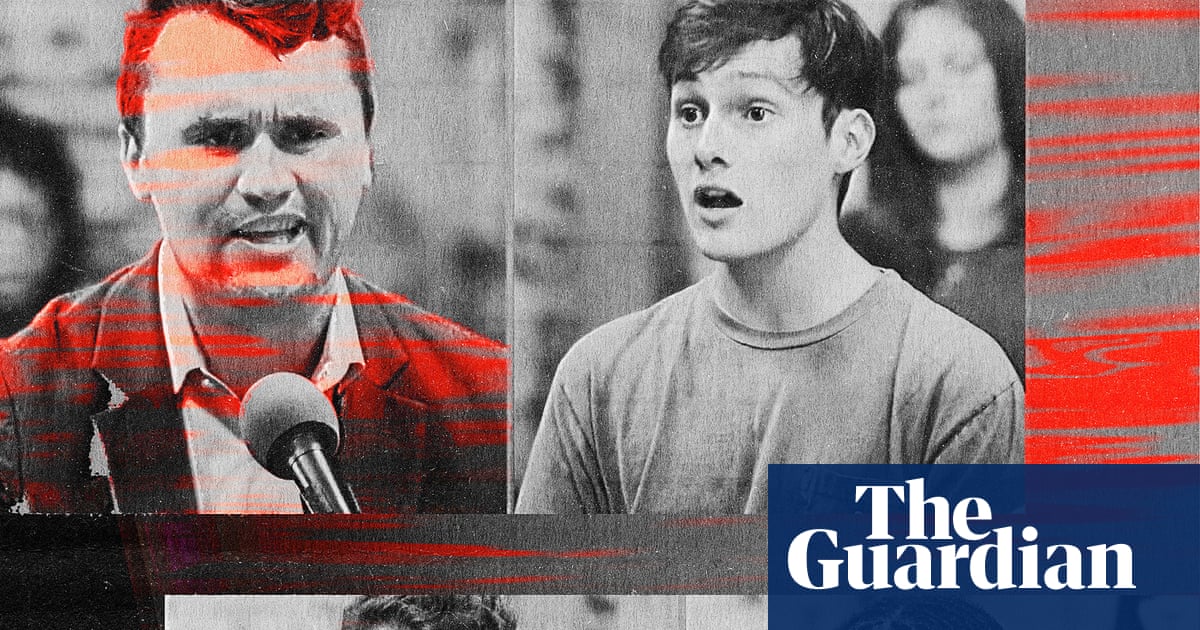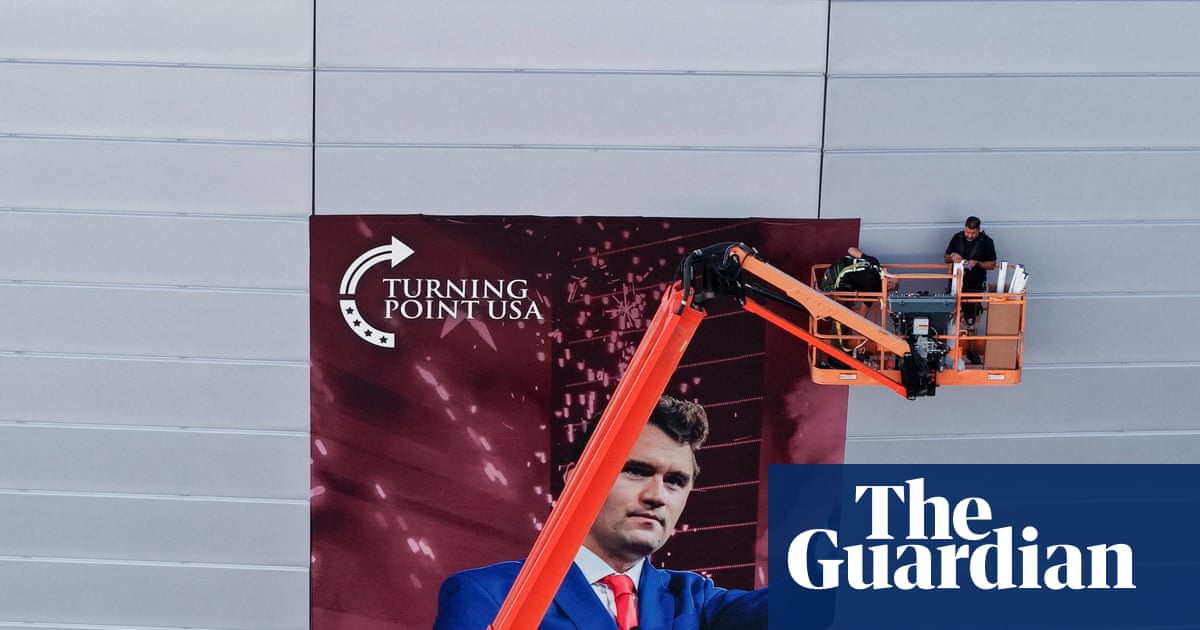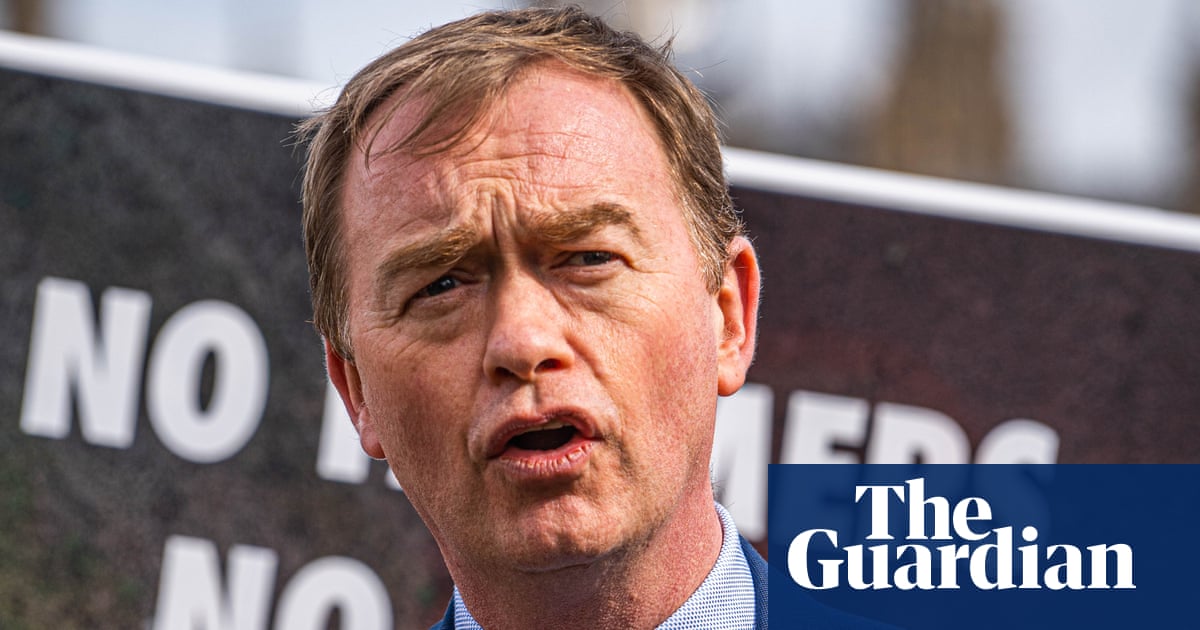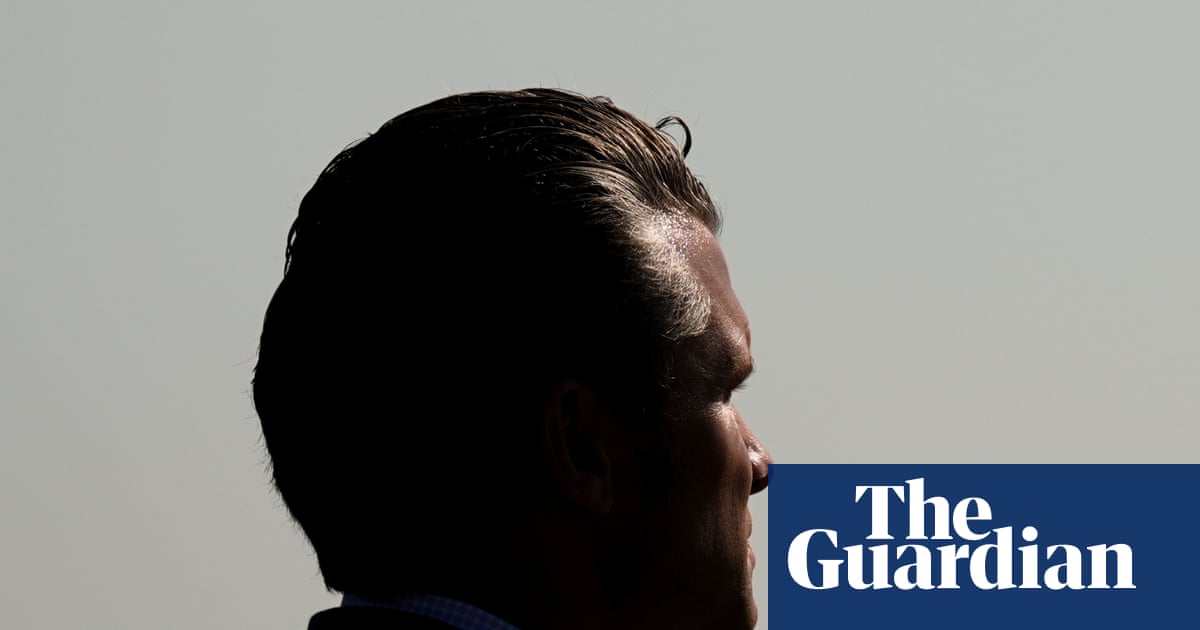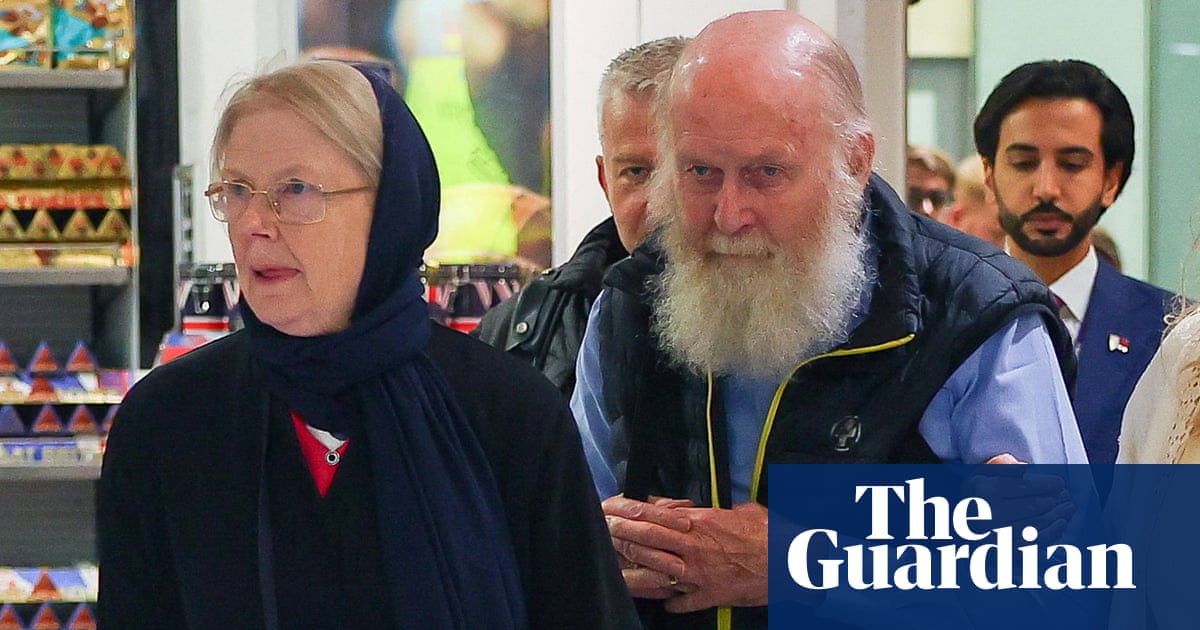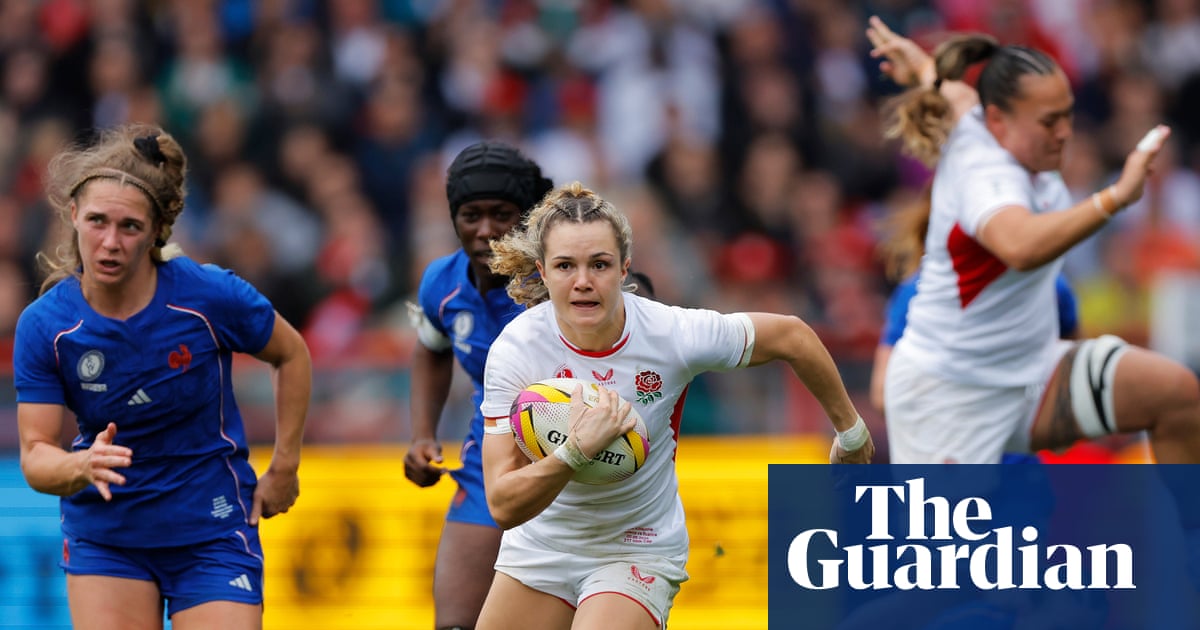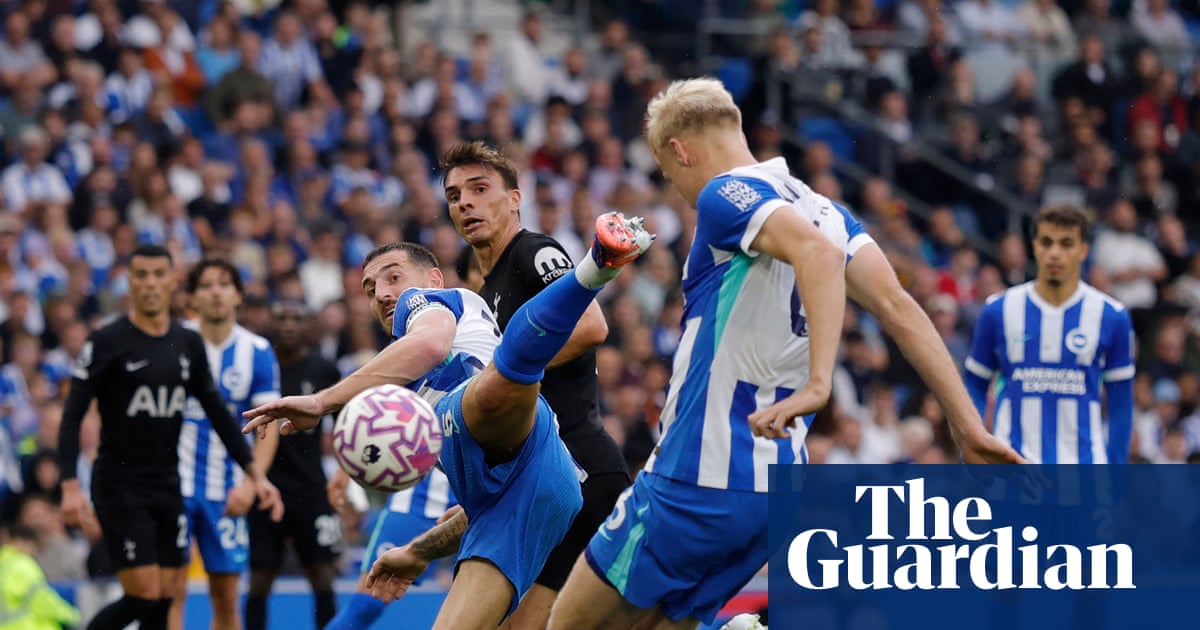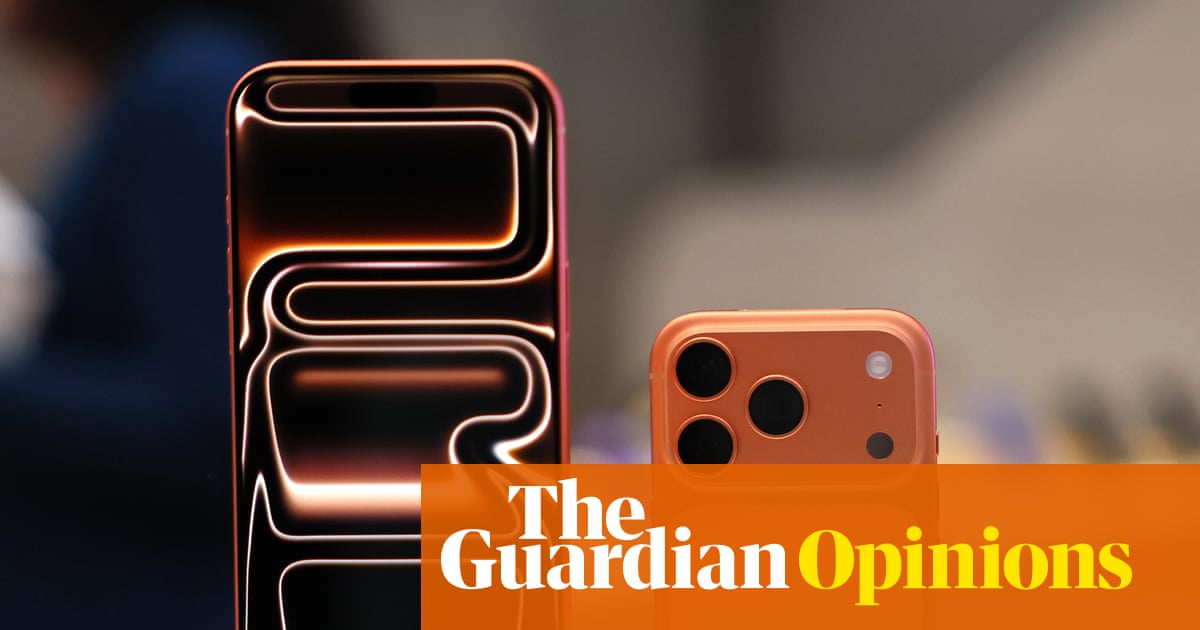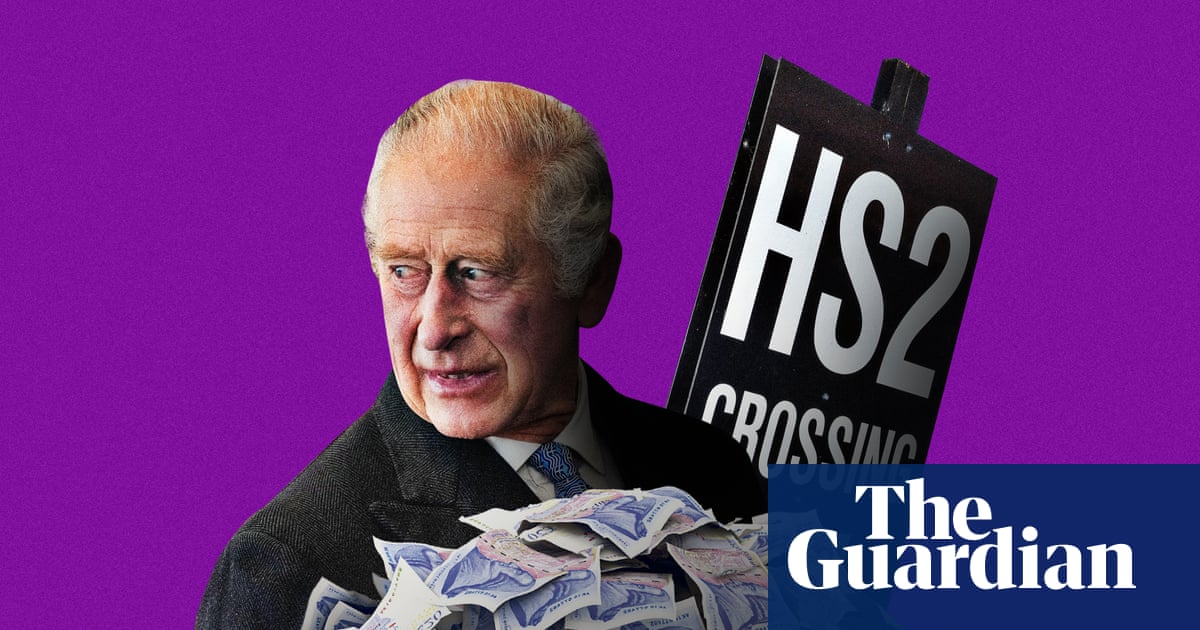Oasis didn’t invent the concept of the gobby, tabloid-baiting British rock’n’roll star, but they did perfect it. Combining the Beatles’ irreverent cheek, Sex Pistols’ raucous hedonism and Morrissey’s dour Mancunian wit, the Gallagher brothers arrived in 1994 with their comedy act – built around acerbic sibling banter and knowingly ludicrous levels of braggadocio – down pat. For the music press, they really were God’s gift: in one their earliest interviews, Liam informed Melody Maker that he pitied “anyone who doesn’t buy our records,” while Noel insisted they were planning to win the Eurovision song contest with a new number called All Around the World. “It’ll sail it by at least, ooh, 30 points. This is the track to end all tracks.”
Oasis split in 2009, but the bon mots that buoyed Britpop and Cool Britannia kept flowing – three decades on from their debut, the brothers’ rivalry, egotism and brutal putdowns still power a significant subsection of our news cycle. You couldn’t claim it overshadowed their music – the majesty of Oasis’s biggest hits drowns out any petty squabbling – but since the band’s heyday ended the Gallaghers have been dealing primarily in persona. When the 1975’s Matty Healy claimed that “the difference between me and Noel is that I do a series of interviews to promote an album, whereas he does an album to promote a series of interviews”, he wasn’t far off.
In some ways, the Gallaghers’ lasting legacy is this archetype: the mercilessly funny, unapologetically arrogant yet resolutely down-to-earth British rock star. But as they return to the stage on Friday, does that pisstaking and swagger feel outdated? Or has British music got wretchedly dull and safe without it?
In the 1990s, they embodied new laddism – football, pints, loutish demeanour, but make it self-aware – and while their Britpop peers were more sensitive (Damon Albarn later likened them to school bullies), their mouthiness was mirrored in the era’s pop giants including the Spice Girls and Robbie Williams. By the 2000s, it certainly seemed like everybody was reading from the same hymn sheet. An indie scene’s young stars were reared on Oasis (a proto Arctic Monkeys mimed to Morning Glory in primary school assembly; an adorable 18-year-old Pete Doherty informed a news crew that he subscribed “to the Umberto Eco view” of the band in the release day queue for Be Here Now) and were cultivated by a music press scrambling to anoint new headline-generating stars in the Gallagher vein. “Oasis have gone, WE are the biggest band in Britain now,” declared Kasabian on the front of the NME, while Lily Allen’s cover came accompanied by the strapline: “I can’t stop slagging people off!”
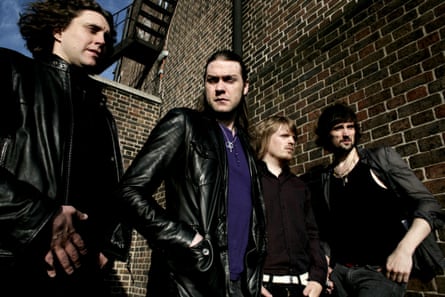
For Allen and a new generation of female singers – Amy Winehouse, Kate Nash, Adele – loudmouthery was practically a prerequisite to success. As Sylvia Patterson put it in this newspaper: “In 2008, it’s still all about the gobby young girls.” Blur v Oasis may have been long dormant at this point, but copycat feuds were being ignited at a rate of knots: Kasabian v Keane; Allen v Cheryl Cole; Winehouse v Dido. Still, nobody had one-liners as perfect as the Gallaghers, from Liam’s assertion that Chris Martin looked like a geography teacher to Noel’s claim that the Libertines resembled “lads with no teeth and their grandad’s hats”.
Other artists still don’t match up, but that’s mainly because slagging off other musicians has been largely erased from the rock star playbook. Telling it like it is with an exquisitely comic turn of phrase may seem like harmless fun; in reality, it is usually synonymous with body shaming (or worse). Nowadays, nobody wants to be offensive, nobody wants to traumatise – it’s not cool to be casually cruel, and the combination of virulent online fanbases and cancel culture mean it’s too risky anyway.
Oasis’s brand of cocksure self-confidence, though, is in rude health. At last weekend’s Glastonbury, fellow Mancunian Healy (a “slack-jawed fuckwit,” according to Noel) declared himself the “best songwriter of [his] generation,” as graphics mocking his lyrics flashed up on the screens around him. Charli xcx brought the party-starting egomania, while CMAT declared she had “an amazing ass and the best Irish country rock’n’roll band in the world.” A group of working-class, betracksuited lads who like drugs, pubs and incendiary jokes performed one of the festival’s most popular sets.
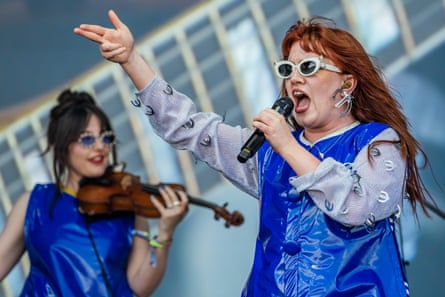
And yet Kneecap are in many ways the inverse of Oasis. While Noel has been busy lambasting Glastonbury as “woke”, “preachy” and “virtue-signalling”, the Belfast band doubled-down on their protest against the genocide in Gaza, while maintaining their original MO of promoting Irish language and culture. In fact, this year’s festival proved that the no-fucks-given gobbiness of Oasis has been redirected to earnestly expressed humanitarianism. The outspoken, straight-talking indie musician Nadine Shah read out an open letter in support of Palestine Action, while Kate Nash generated column inches with her expletive-laden tirade against JK Rowling and transphobia (which “is not fucking feminist”), something CMAT has also spoken passionately against.
Now, you might argue, is not the time for rock stars in the Oasis mould: empty bluster and nasty (if amusing) zingers directed at peers isn’t exactly fun escapism in the Trumpian age. Yet the Gallaghers did stand for something. One accusation directed towards Oasis is that they made guitar music blander, and you could say they did the same for the rock star persona, too. They were never boring, but beyond the banter there was nothing particularly wild or weird about them; they were missing the Beatles’s zaniness, Sex Pistols’ radical sneer, Morrissey’s intellectual snobbery.
However, in the wake of the upwardly mobile 1980s, they exemplified and glorified run-of-the-mill life and run-of-the-mill people: like much of the best British culture, they made normality seem valuable and worthwhile. Oasis always aimed to be accessible – in that Melody Maker interview, Noel said he made music for “the guy who walks down the street to get his copy of the fucking Daily Mirror and his 20 Bensons every day, and who’s got fuck all going for him”. He and Liam grew up on a council estate. In a rock and pop scene currently dominated by the middle classes and graduates of the Brit school, it is hard to find an equivalent trajectory.
This is just one reason the search for the new Oasis – once the chief preoccupation of a now severely diminished music press – has ground to a halt, for better (no more bullying jibes) or worse (no more jokes). One consolation: despite their wealth and fame, Liam and Noel have stayed as consistent and normal as you might reasonably hope; they didn’t move to LA, they didn’t find enlightenment, they didn’t become right-wing edgelords (for all that Noel occasionally grumbles about the left) and they haven’t got entirely lost in their own legend (just before Oasis split, Noel described his guitar playing as “average at best”). We may not have any worthy successors to what many consider the platonic ideal of British rock stardom, but for this summer at least, we do still have Oasis.

 2 months ago
76
2 months ago
76

